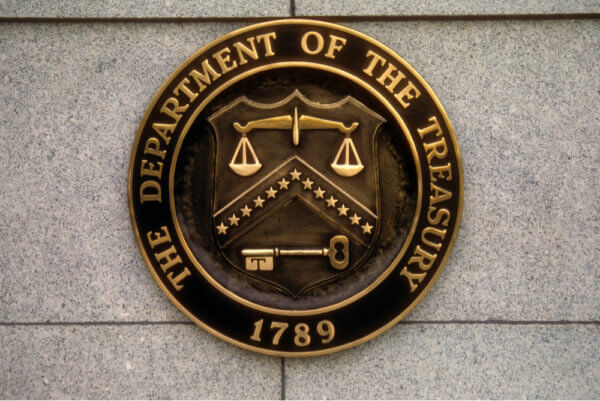The U.S. Treasury Department has sanctioned two Bitcoin addresses used to funnel funds derived from ransomware to Iran.
The ongoing sanctions by the United States against Iran is putting a major squeeze upon the Middle Eastern country. Iran is circumventing the sanctions by using ransomware attacks and other hacks to raise funds. One such avenue of revenue was uncovered by the Treasury Department, which has seen the federal agency take the unprecedented action of sanctioning two addresses on the Bitcoin network.
Lowering the Boom on Bitcoin Addresses
The two addresses belong to Ali Khorashadizadeh and Mohammed Ghorbaniyan. The U.S. government says the two individuals are part of an illicit scheme called “SamSam” that infected computer systems in the U.S., Canada, and the United Kingdom beginning back in 2015.
The now-indicted men supposedly used ransomware attacks to raise bitcoins, which were then converted into the Iranian rial currency. Law enforcement says that millions of dollars flowed through the two addresses, although they admit that some of the funds may have derived from sources other than hacking. This move by the federal agency shows that the supposed anonymity of Bitcoin is highly overrated as the digital currency is actually easily tracked.

Sigal Mandelker, Treasury Under Secretary for Terrorism and Financial Intelligence, said:
Treasury is targeting digital currency exchangers who have enabled Iranian cyber actors to profit from extorting digital ransom payments from their victims. As Iran becomes increasingly isolated and desperate for access to U.S. dollars, it is vital that virtual currency exchanges, peer-to-peer exchangers, and other providers of digital currency networks harden their networks against these illicit schemes.
Iran Turning to Crypto
As U.S. sanctions tighten, Iran is increasingly looking to cryptocurrency to circumvent them. One loophole that Iran is exploring is creating their own rial-backed cryptocurrency. This move has earned the ire of FinCEN. A recent report by FinCEN notes that Iranian funds are used for the “support of malign conduct, including terrorism, human rights abuse, and so forth.”
The new national cryptocurrency, which is to be issued by the Central Bank of Iran, has no official release date. However, officials have noted that it is currently in its pilot stage.

While Iran develops its own virtual currency, it’s looking to replenish its coffers through aggressive hacking campaigns. Cybersecurity experts at Accenture have identified five new types of ransomware that can be linked back to Iran. The Iranian government denies any such wrongdoing, but researchers say that the regime is backing such malicious efforts, including the targeting of the region’s oil and gas industry with cryptojacking attacks.
Mandelker says that the U.S. government will keep the pressure on and ferret out such crypto criminality. He says:
Treasury will aggressively pursue Iran and other rogue regimes attempting to exploit digital currencies…to further their nefarious objectives.
What do you think about the sanctions handed down against the two Bitcoin addresses? Let us know in the comments below.
Images courtesy of Shutterstock.
 livebitcoinnews.com
livebitcoinnews.com